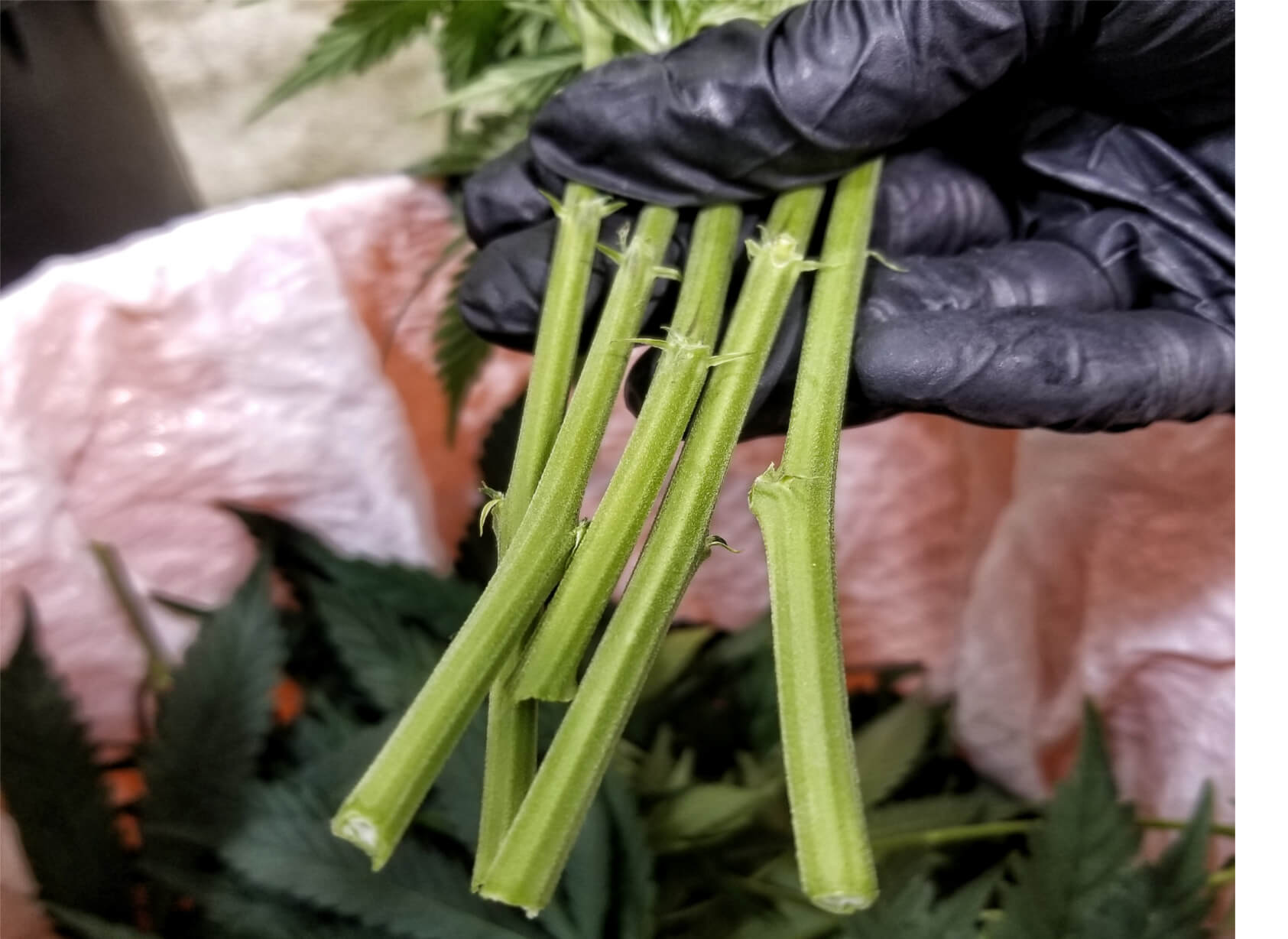- What is IBA?
- Rooting Hormones Applied
What is IBA?
IBA stands for Indole-3-butyric acid and it is a naturally occurring plant hormone that is used in commercial plant rooting products which is why it is known as a “rooting hormone”. IBA is created by plants and can be produced by soil bacteria. It is available in multiple forms such as gels and powders. These rooting products are applied to the basal end of cuttings just prior to placing the cut in its medium. The use of such rooting compounds can accelerate root initiation and increase the total number of roots which can reduce the total rooting time allowing growers to have more viable clones ready for transplant sooner than if a rooting compound was not used.

Rooting Hormones Applied
The most popular rooting hormone is IBA, and it is commonly found in many commercial rooting products. IBA is converted to IAA by plants as a usable form of rooting hormone. IAA or Indole-3-acetic acid, is not commonly used in propagation products because it breaks down quickly when compared to IBA. IBA is not soluble in water so it is typically dissolved in alcohol and then diluted with distilled water to different concentrations depending on the product. Powders and gel rooting products work much in the same way. To apply the rooting product, dip the basal end of your plant cutting into a cup of powder or cup of gel, then place the dipped cut into the propagation substrate.
Comments powered by Talkyard.